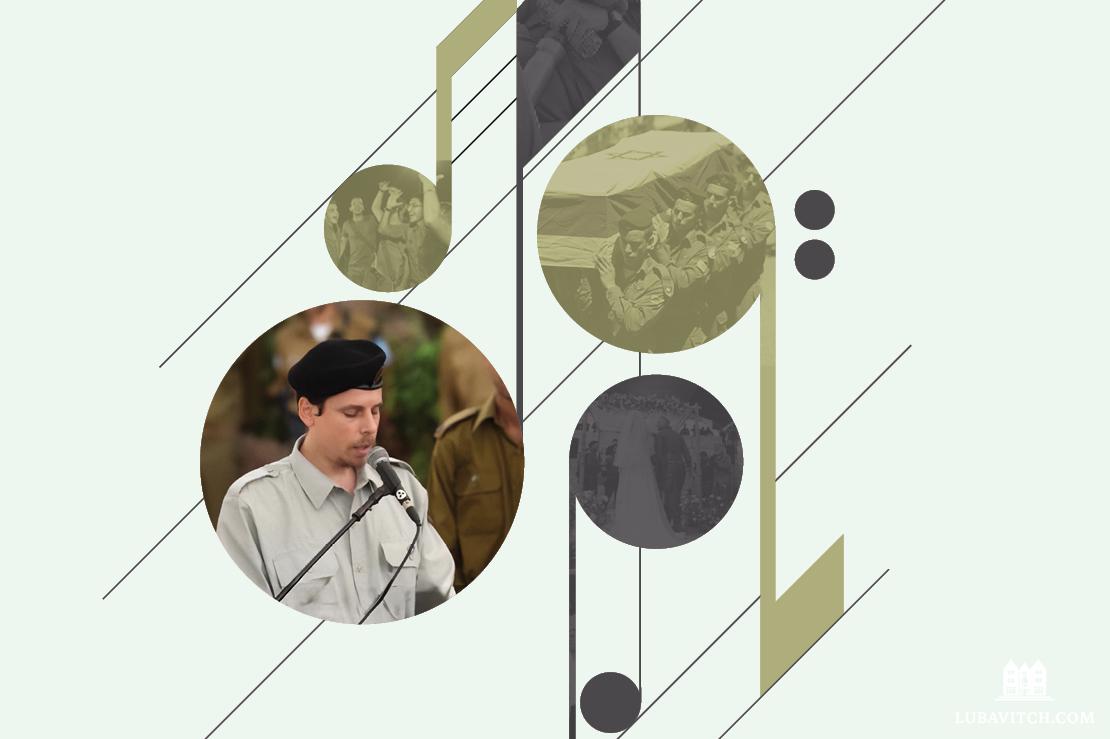On February 2, friends and family gathered at a shiva house to mourn the death of IDF Major Yitzhar Hoffman. Sitting among them was the celebrated Israeli singer and songwriter Hanan ben Ari, accompanying his soulful vocals on guitar. Hoffman, a father of two young children, was killed fighting Hamas terrorists in Gaza. His young wife—sitting close to the ground in the manner of mourners, her face bowed—moved her lips to Hanan’s poignant lyrics as she sobbed silently. Hanan’s songs, exploring love, faith and the human experience are familiar to most Israelis for their honest, evocative quality. When he got to the words, “Mother, if only I could heal the longing . . .” the fallen soldier’s mother and father buried their faces in their palms and wept.
Tiny Israel—where everyone knows someone who was killed or kidnapped—is a nation in deep mourning. In the weeks since October 7, as Israelis have been busy burying their dead, soldiers and civilians, they’ve also been singing—more than usual. For some, it is the only language that allows them to give voice to their inexpressible sorrow. Others turn to music because it elevates them to a spiritual plane where they find solace.
Israel’s military cantors have had little reprieve during this war. The units, which usually officiate at formal state events, have been leading funerals back to back, along with occasional impromptu “war weddings” on military bases. Amit Listvand, 40, an attorney and father of six, was a child-prodigy singer in his youth. Today, he is a reservist in the IDF’s cantors division. He spoke with Lubavitch International about his experience.
What is your role as a military cantor?
Military cantors lead the recital of Psalms as the coffin is carried to its resting place. We preside at the burial, and sing the El-maleh Rachamim [Merciful God. . . ] prayer that is said at the gravesite. Cantors are also present at the end of the seven days of shiva, accompanying the family when they return to the burial site. And then again, we are there at the shloshim, after the thirty-day period of mourning, which is when the unveiling usually takes place. We pray with the family and support them.
You’ve been doing this day after day in recent months, even several times a day. How do you manage that, emotionally?
There were days in the first weeks of the war when we were called to as many as ten funerals a day. I’d get up before sunrise and I wouldn’t get home till after midnight. It takes a huge emotional toll. But you learn to contain yourself, to keep your emotions in check so that you can carry out your role with the respect that each funeral and every family deserves. And then you work through the emotional strain and trauma. The IDF gives us a lot of counseling and therapy to help us in this regard.
What is the most difficult part of a burial, for you?
At the beginning, because of the number of funerals we were conducting in one day, there was no time to begin at the chapel where the family usually gets to say their final goodbyes in private. The military’s human resources were also spread thin, so everything had to happen at once at the burial site, and it fell to us—military cantors—to take on that role normally filled by others. About an hour or so before the funeral began, we’d arrive with the body to give the family a chance to identify their loved one and say goodbye for the last time. It is unbearably heartbreaking to watch.
It’s not usual for mourners to sing. Yet song seems to have played a role in many of the funerals. Is this typical?
It depends on the family. Often at these funerals, or at the shiva, the families will sing the Ani Maamin—I Believe—an ode to our faith in redemption. Or they will sing niggunim—wordless melodies that seem to raise them up to another realm. It’s very powerful, and you see the spiritual uplift on the faces of the people as they sing.
Many of the funerals were shared on Israeli media. As heartrending as they are, the mourners have a kind of spiritual dignity. Can you speak to that?
Yes, this is true especially for Israelis who appreciate that the war we are fighting now is a milchemet mitzvah—a mandatory war, a moral war, because it is in defense of the Jewish people. So the soldiers know, going in, what the risks are. And they are fighting to honor their highest ideals.
Their sacrifice is noted by the fact that, by Jewish law, they are regarded as kedoshim, holy, and they do not need to have a taharah—washing and cleansing the body—which is otherwise part of a Jewish burial process.
The parents also know that their child may not return. They lost what is most precious to them, but they really do take consolation knowing that their child lived and gave their life up for Ahavat Yisrael—the love of the Jewish people. It is ennobling.
***
Twenty-one-year-old Itamar ben Yehuda fell fighting terrorists on October 7. At his funeral, Ishai Ribo, one of Israel’s most popular singers, sang his famous song, HaLev Sheli—“My Heart.” Surrounded by mourners grieving their all-too-young loved one, he choked up. His voice broke and all you could hear were his tears. But after a few moments, he pulled himself together and continued his song, a petition to G-d to heal the heartbreak of a nation: “For only You can turn my eulogy into dance.”
This article appears in the Spring/Summer 2024 issue of Lubavitch International, to subscribe to the magazine, click here.

Be the first to write a comment.